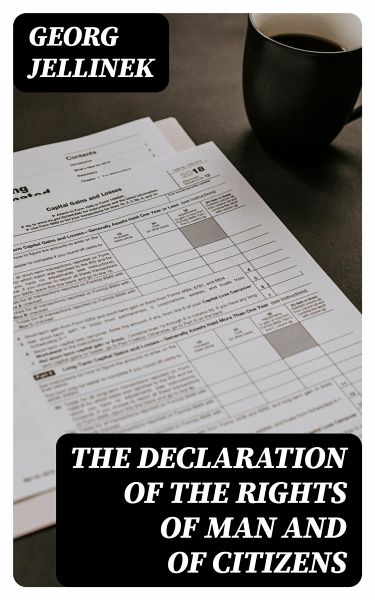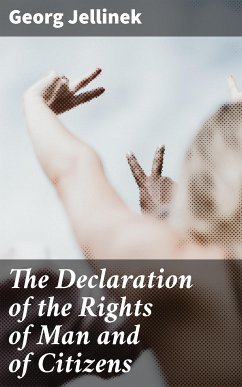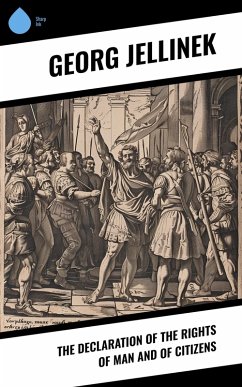
The Declaration of the Rights of Man and of Citizens (eBook, ePUB)

PAYBACK Punkte
0 °P sammeln!
In "The Declaration of the Rights of Man and of Citizens," Georg Jellinek meticulously explores the origins and implications of this seminal document, a cornerstone of modern democratic values. Through a comprehensive analysis, Jellinek employs a rich and incisive literary style that intertwines historical narrative with philosophical inquiry, situating the declaration within the broader context of Enlightenment thought and the revolutionary fervor of the late 18th century. His examination delves into the foundational principles of liberty, equality, and fraternity, meticulously tracing their ...
In "The Declaration of the Rights of Man and of Citizens," Georg Jellinek meticulously explores the origins and implications of this seminal document, a cornerstone of modern democratic values. Through a comprehensive analysis, Jellinek employs a rich and incisive literary style that intertwines historical narrative with philosophical inquiry, situating the declaration within the broader context of Enlightenment thought and the revolutionary fervor of the late 18th century. His examination delves into the foundational principles of liberty, equality, and fraternity, meticulously tracing their evolution and influence on contemporary human rights discourses. Georg Jellinek, a prominent figure in the field of legal philosophy, was deeply influenced by the socio-political upheavals of his time. His scholarly background and advocacy for social justice shaped his perspective on law and morality, compelling him to address the undercurrents of rights and responsibilities that shaped the modern state. Jellinek's work reflects a profound commitment to understanding the interplay between legal frameworks and human rights, drawing from his Eastern European upbringing and academic pursuits in philosophy and law. This book is essential for anyone interested in the philosophical foundations of democracy and human rights. Jellinek's insightful analysis not only enhances our understanding of the declaration's historical significance but also fosters a critical engagement with its ongoing relevance in contemporary society. Readers will find this work invaluable as it challenges them to reflect on the ideals that continue to shape our world today.
Dieser Download kann aus rechtlichen Gründen nur mit Rechnungsadresse in A, B, BG, CY, CZ, D, DK, EW, FIN, F, GR, H, IRL, I, LT, L, LR, M, NL, PL, P, R, S, SLO, SK ausgeliefert werden.













